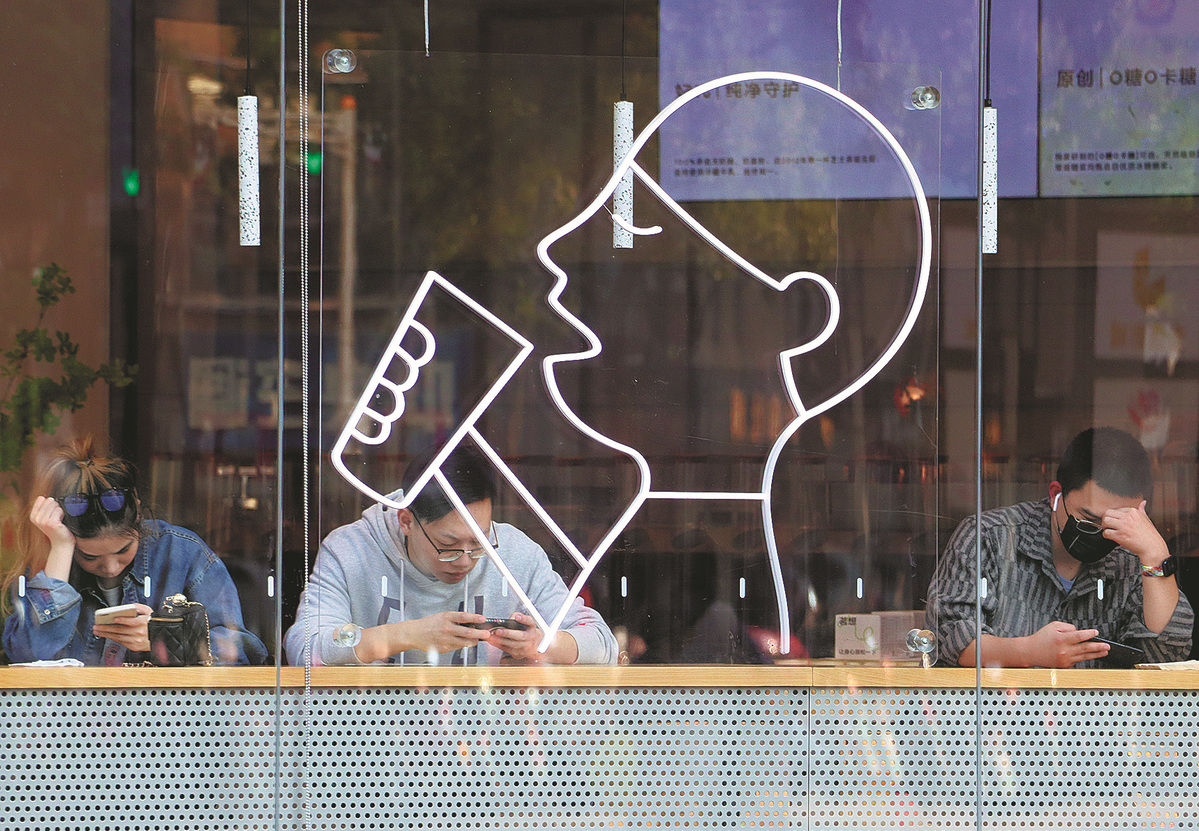Freebies gain popularity among consumers as marketers hit sweet spot
By ZHENG YIRAN | China Daily | Updated: 2023-05-25 09:24

Consumers are going all out to grab freebies, a marketing tactic that is generating new business growth points for brands amid rising consumption levels and a booming tourism sector.
During this year's May Day holiday, a freebie given out by Chinese tea maker Heytea was in high demand.
Heytea launched city-themed fridge magnets, joining hands with 11 tourist hot spots, such as Guangzhou and Jiangmen in Guangdong province, Luoyang in Henan province and Sanya in Hainan province.
When Heytea handed out the magnets at some scenic spots and its own outlets, consumers lined up and the magnets were all taken within an hour.
The freebie — in the form of a fridge magnet — helps promote sales of Heytea.
In the outlets earmarked as fridge magnet claim stations, daily sales rose 180 percent from the level seen before the holiday.
"Knowing that Heytea had launched city-themed fridge magnets, I decided to try my luck as I happened to be traveling in Xi'an, Shaanxi province" said a tourist surnamed Zhang. "I got the fridge magnet at the Qujiang tourism service center. The fridge magnet demonstrates tourism elements, such as the Yongning Gate. It is a unique souvenir."
By May 16, there were over 1,700 posts related to the "Heytea city-themed fridge magnet" on lifestyle-sharing platform Xiaohongshu. Some users showed off the city-themed fridge magnet they had received on social media, while others became willing to spend 100 yuan ($14.3) to buy the magnet from those who had received it as a freebie.
The Heytea experience demonstrates how business is being generated by freebies.
Last year, KFC launched the Psyduck (an animated creature resembling a yellow duck) as its Children's Day set meal gift. As the gift was handed out immediately, it was then priced at over 1,000 yuan on secondhand platforms. Likewise, when US coffee chain Starbucks launched a limited edition cat paw mug, the mugs were sold out within minutes after the product went on sale. The mugs were sold for 199 yuan at stores, but often resold online for as much as 1,800 yuan.
"The popularity of freebies comes from consumers' emotional appeal and consumption desire to their favorite brands or intellectual properties. It is also promoted by the development of the tourism industry," said You Xi, a researcher at the Kandong Research Institute, a technology-focused think tank.
"The launch of freebies not only raises consumers' interest in products, but also increases IP exposure and brand loyalty. It is a win-win marketing strategy," he said.
According to a report by online market information observer canyinj.com, the reason for the popularity of freebies is that they have become a social currency.
"The products represent brands' culture and serve as something to talk about, stimulating consumers' desire to express themselves, while bringing them emotional value," it said.
"The fact that freebies are limited further makes consumers, especially young consumers, willing to buy and share them with friends. As limited editions are more precious, having the limited editions makes them feel good," said canyinj.com's report.
As more brands launch freebies, it has become challenging to attract the attention of consumers.
According to the report by Canyinj.com, successful brands are good at building an image, or IP, so as to make a deep impression among consumers.
For example, Heytea created Axi, a cartoon character as its IP, and applied the IP in different scenarios to form freebies. Axi personalizes the brand, and shortens the distance between the brand and consumers.
"In addition, it is important to build a freebie system, constantly bringing new products. In this way, consumers will have more faith in the quality and originality of the freebies, helping the brands accumulate more traffic," said the report.
To promote the sustainable development of freebie-related business, You from Kandong Research Institute suggested that merchants should pay attention to quality and creativity while designing freebies, instead of popularity and quantity. In addition, consumers should buy products rationally and avoid excessive spending.
"Also, the government should enhance supervision to prevent unreasonable price increases and vicious competition," he said.
























